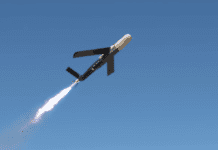This post is also available in:
 עברית (Hebrew)
עברית (Hebrew)
The global spending on smart city development is about to reach $158 billion by 2022, according to a forecast by the International Data Corporation (IDC) Worldwide Semiannual Smart Cities Spending Guide.
Smart cities are using technology to increase the speed and efficiency of urban services. Connected technologies and internet-connected digital devices (IoT) have become a vital component in the creation of more efficient smart cities. The expanding incorporation of 5G communication technology will enable more rapid and efficient data sharing between connected devices.
IoT applications in smart cities encompass various aspects, from security to the environment.
Cities are adopting real-time crime mapping, gunshot detection, and predictive policing tools to help identify potential hotspots and prevent crimes from happening.
Sensors on roads and bridges monitor vibration and humidity for damage. Smart roads that support automated vehicles will be able to communicate with automated vehicles to ensure the safety of drivers, and better optimize traffic.
Smart street lamps save energy by tracking pedestrian volumes.
Data-based health interventions which can prevent diseases before they occur and have proven to be particularly effective in cities with a high disease burden and low access to care, such as Lagos in Nigeria. Cities currently coping with the Coronavirus use a vast array of technologies, e.g. drones for epidemiologic intelligence, delivery of medications and blood samples, etc.
Greenhouse gas emissions can be cut by up to 15% with smart city solutions by reducing electricity and heat production.
Applications such as smart irrigation systems, water leakage monitoring, etc. could save a city between 25-80 liters of water per person, per day.
According to visualcapitalist.com, significant growth is expected from emerging smart city innovations during 2017-2022:
- Officer wearables: Devices that equip police officers, such as body cameras, with real-time information to improve awareness and make better decisions
Global CAGR: 62% - Vehicle to everything (V2X) connectivity: Allows cars to communicate with other cars, transport infrastructure, and pedestrians
Global CAGR: 49% - Smart trash collection: Solar powered, sensor-equipped smart bins allow waste collectors to track waste levels and optimize their fuel usage
Global CAGR: 23% - Smart city platforms: Systems that collect data from different areas such as pollution levels and traffic density to better manage smart cities
Global CAGR: 23%
Interested in learning more about new smart city and IoT technologies? Attend i-HLS’s InnoTech Expo in Tel Aviv – Israel’s largest innovation, HLS, and cyber technologies expo – on November 18-19, 2020 at Expo Tel Aviv, Pavilion 2.


























